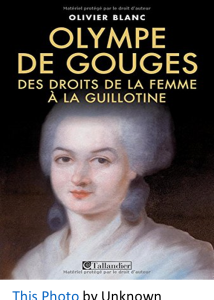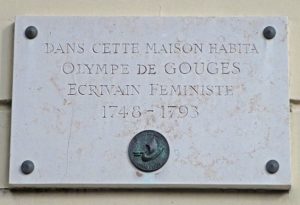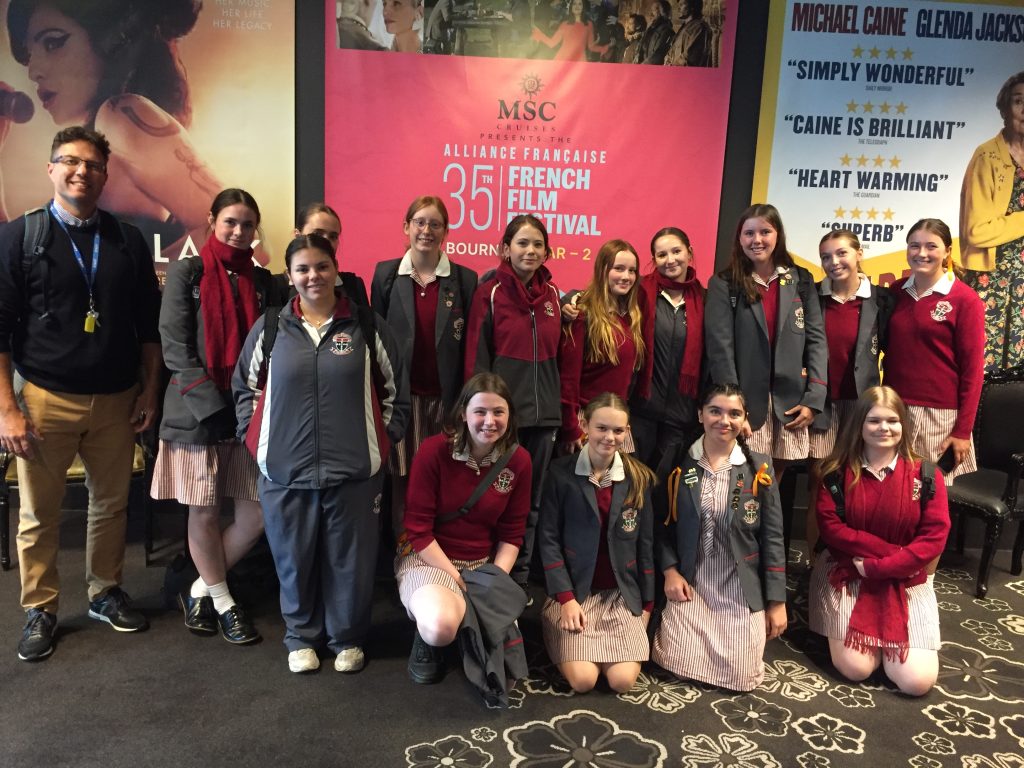Languages

Olympe de Gouges
A Trailblazer for Women’s Rights
Year 10 and 11 French has been exploring some historical figures linked to the French revolution. Among them we learnt about Olympe de Gouges.

Olympe was early French feminist, in an era when women were relegated to the margins of society. She championed their rights with great determination.

Born in 1748, Olympe de Gouges defied societal norms and dared to challenge the prevailing notions of gender inequality. Through her writings and activism, she sought to dismantle the patriarchal structures that confined women to subordinate roles.
Her most renowned work, the “Declaration of the Rights of Woman and the Female Citizen”, boldly asserted for the first time that women are equal to men in rights and should be granted the same privileges and opportunities.
Olympe’s advocacy was revolutionary for its time, sparking crucial conversations about gender equality and women’s liberation. Despite facing resistance and persecution, she remained steadfast in her pursuit of justice, becoming a beacon of hope for countless women who yearned for a more equitable society.
Giovanni Di Fabrizio
Learning Leader: Languages
Melbourne French Film Festival
From the art of conducting an orchestra, to the struggles endured by a young dynamic musician perusing her dream in a man’s world; the Years 10 and 11 French class was invited to a world of music as we watched the biopic Divertimento from the Melbourne French Film Festival.
Our class was one of many schools at the Palace Cinema Como and we followed the story of a young Zahia Ziouani who challenged and fought for her vision to lead her own ensemble. The film was a hopeful reminder that music isn’t reserved for the elite and rich and conveyed that anyone with drive, passion and talent can make it, even a girl from the French suburbs.

Rhiannan Marie-Jeanne
Year 10
VCE Italian
A topic we have recently been discussing in the senior Italian class is the existence of statues commemorating historical figures, such as Captain Cook and Christopher Columbus. These statues can be seen across various cities and suburbs, in both Australia and America, with the intention of recognising the men who ‘discovered’ their relative countries.
They, however, have been the source of much debate for several years. Many people, particularly those from Indigenous communities, believe it is inappropriate and disrespectful to showcase these figures considering their immensely violent and destructive pasts. Both Captain Cook and Christopher Columbus are connected to extreme mistreatment of and brutality towards First Nations Peoples, therefore the statues serve only as a reminder of these tragedies and should be removed.
An additional perspective proposes the idea that the statues should remain as they relate to an integral part of history. However, the people, actions and their associated days of celebration (for example, Columbus Day), should no longer be celebrated.
Emma Allan
VCE Italian




